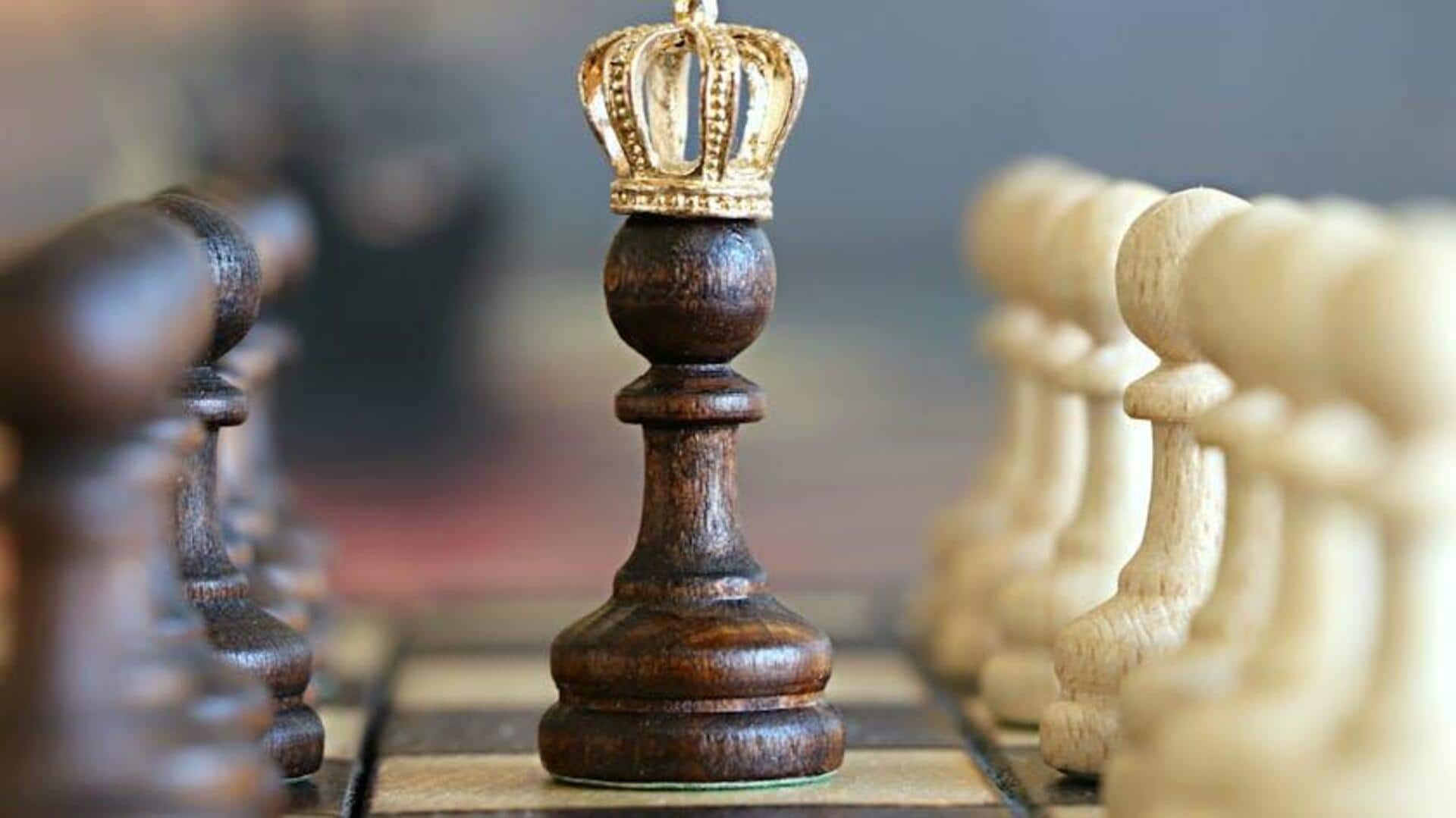
Master chess with these simple strategies
What's the story
Chess endgames, the game's concluding phase, require accuracy, foresight, and a deep understanding of chess principles.
Strengthening your strategy for this critical stage can dramatically increase your winning potential.
This article explores five cognitive exercises to sharpen your skills and enhance your performance in chess endgames.
These exercises focus on improving visualization, problem-solving capabilities, and strategic thinking, all crucial for excelling in endgame scenarios.
Visualization
Practice visualization techniques
Visualization is key in chess, particularly in the endgame where the board is emptier, and you need to calculate many moves ahead.
Take time to sit away from the board and visualize different endgame positions.
Close your eyes and try to see the moves, moving pieces across the board in your mind without actually doing it.
This practice strengthens memory and enables players to better anticipate their opponent's moves.
Puzzles
Solve endgame puzzles regularly
Endgame puzzles are great for drilling specific situations that come up in real games.
These usually focus on promoting pawns or checkmating with only a few pieces left on the board.
By tackling puzzles like these daily, you'll get a handle on crucial patterns and tactics. Knowing these is key to clinching victories in endgames.
Analysis
Study grandmaster games
Studying grandmaster games helps you understand the thought process behind strategic decisions, especially in the endgame.
Concentrate on games that evolve into different endgames but start from similar positions as yours.
Observe how grandmasters position their pieces, when they exchange pieces, and the techniques they use to win or draw from positions that appear equal.
Practice games
Play practice games focusing on endgames
The best way to get better at anything is to practice.
Organize practice matches with friends or online opponents, but instead of starting from the opening positions, begin from typical endgame positions.
This way, you're forced to think critically about each move since every decision can potentially win or lose the game.
Flexibility
Incorporate cognitive flexibility exercises
Cognitive flexibility is your ability to rapidly switch your thinking based on new info.
Chess forces you to continually adapt your game plan to your opponent's unexpected moves.
Do activities that push your problem-solving abilities under different conditions.
Timed puzzles or fast-paced strategy video games that demand quick thinking and adaptability are good choices.